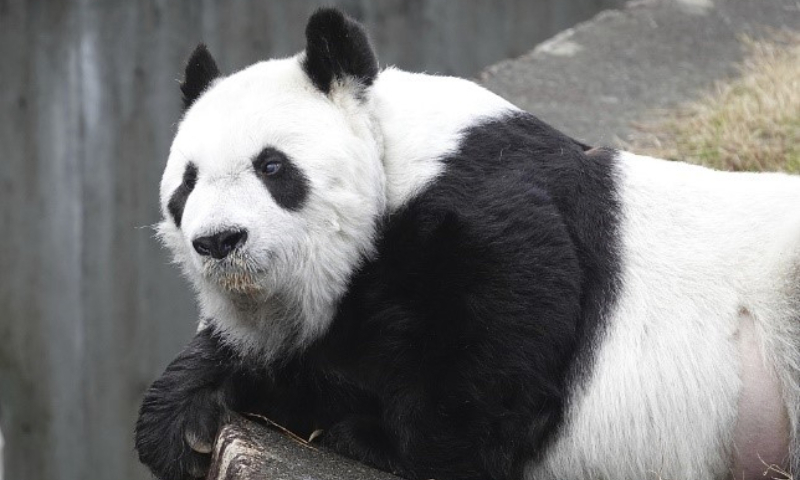
Specimen of giant panda Shuangshuang, once living in Japan, returns to China

The specimen of female giant panda Shuangshuang was returned to China from Japan's Kobe Oji Zoo on Thursday, according to the China Wildlife Conservation Association's (CWCA's) official WeChat account on Thursday. The giant panda died of heart disease in March 2024 at the zoo at the age of 29.
According to the statement, Shuangshuang's return followed friendly consultations and close cooperation between the CWCA and the Kobe Oji Zoo. The China Giant Panda Protection Research Center, which originally provided the giant panda, will preserve her specimen.
According to the Kobe Oji Zoo on Thursday, following consultations with the Chinese side, it was decided after the panda's death that Tan Tan (Shuangshuang's Japanese name) would be preserved as a taxidermy specimen and returned to China. The specimen, which departed from Japan on Wednesday and arrived in China on Thursday, will be used for scientific research and public education.
The zoo held a memorial ceremony for Tan Tan in May 2024, a commemorative event in September 2024 for her birthday and another memorial event on March 31 to mark the anniversary of her passing, a staff member from the Kobe Oji Zoo told the Global Times by phone.
"Fans came not only from Kobe but from all over Japan to pay their respects. We truly felt everyone's deep remembrance of her… we continue to receive many warm messages about Tan Tan, which reminds us how significant her presence was," the staff member said.
The Kobe Oji Zoo expressed its wishes to continue contributing to the conservation of giant pandas. "Tan Tan lived with us at the zoo for 24 years, during which we gained valuable knowledge in areas such as captive management and medical care. We hope to pass this knowledge on to future generations and continue cooperating with China in efforts to protect giant pandas," the zoo staff member said.
The giant panda was born in September 1995 and arrived at the Kobe Oji Zoo on July 16, 2000, as part of China's and Japan's joint efforts in international giant panda conservation research, according to an earlier CWCA statement.
The giant panda cooperation agreement signed between the two sides expired in July 2020, but due to the COVID-19 pandemic, Shuangshuang's return to China was postponed twice until late 2021. During a routine check-up in March 2021, Shuangshuang was diagnosed with age-related heart disease. Both China and Japan swiftly organized expert teams for joint diagnoses and intensive care.
Although the giant panda's condition showed some improvement at one point, her health situation began to deteriorate from March 13, 2024. Experts from both China and Japan administered emergency treatment, but regrettably, Shuangshuang passed away on March 31, despite their efforts. According to experts, a 29-year-old giant panda is roughly equivalent to a human nearing 100 years old.


